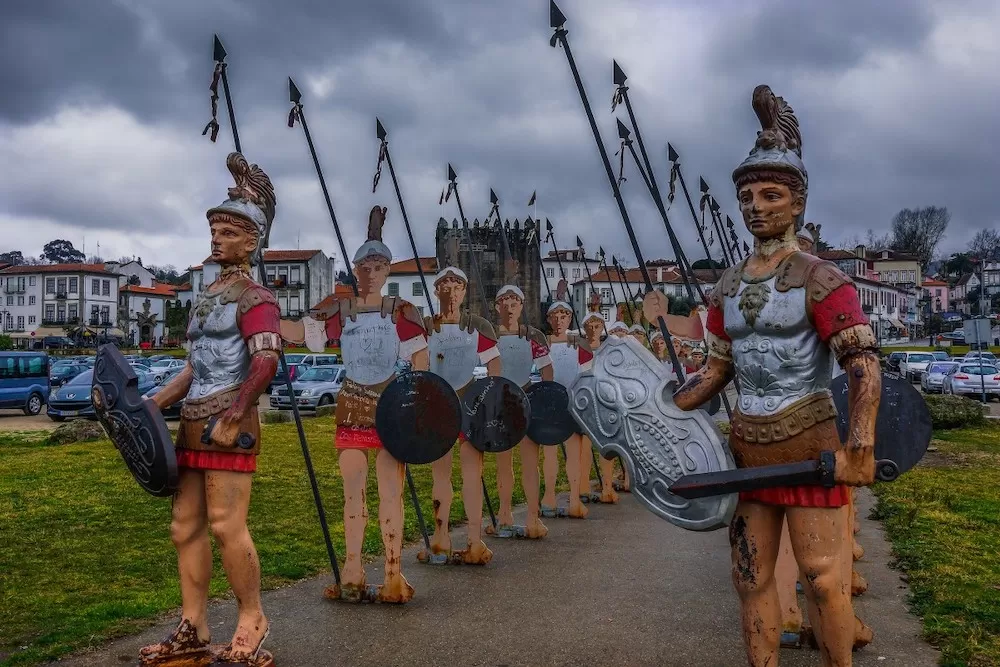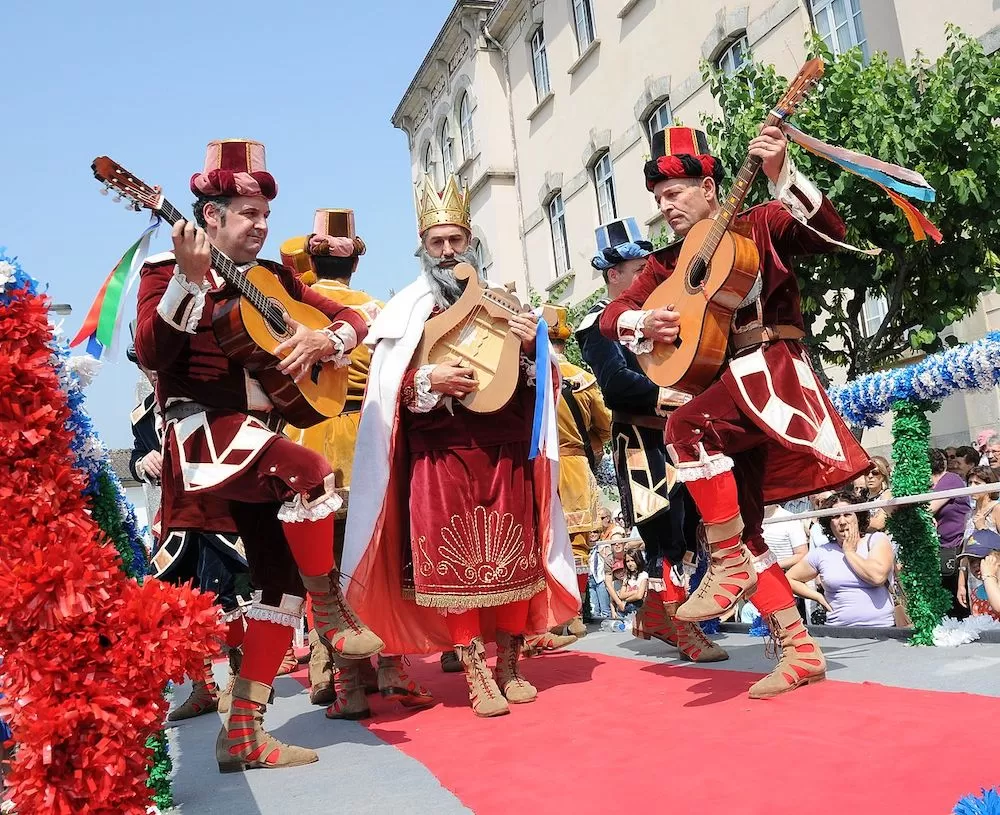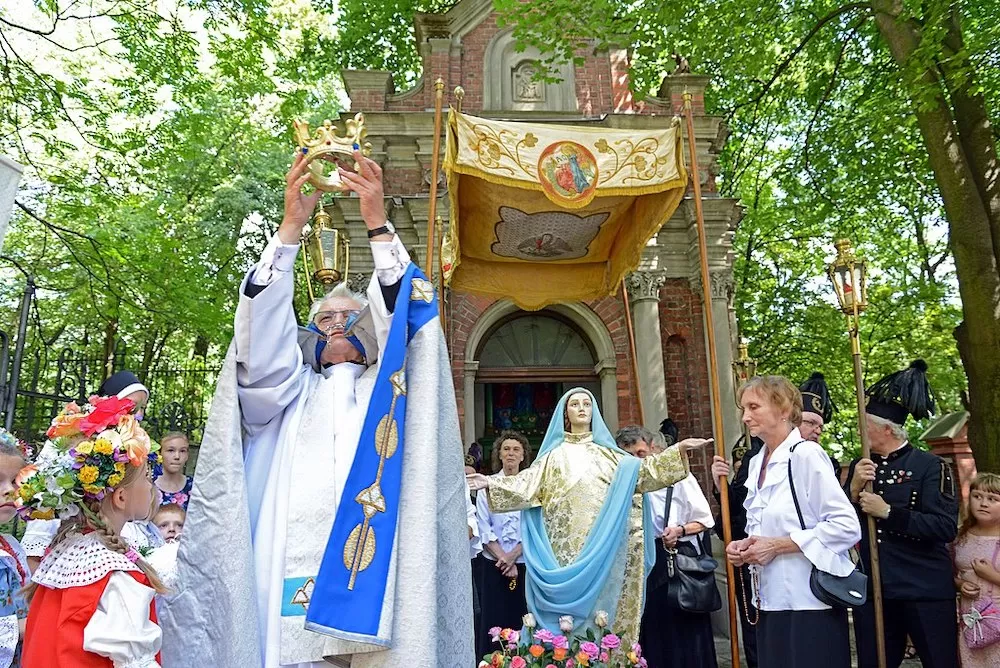A great way to get to know a country is to know its public holidays. These are the special occasions in which a country reveals its dominant religion, harkens back to its history, and shows off its culture. More often than not, people of a country, say Portugal, really embrace their heritage during these holidays. It's a day where they feel most connected to their roots, paying tribute to the identity and history of the country. Portugal has its own fair share of such holidays, some you've probably never heard of before. Here are a few you might like to know.
Carnival (Every February or March)
While most other Catholic countries in Europe, like
France,
Spain, and
Italy, are at their liveliest during Easter Sunday, it's a bit of a different story in Portugal. They bring out the bang right before the Lenten season, during the country's Carnival holiday. Held a few days before the start of Lent (ending on Shrove Tuesday, the day right before Ash Wednesday), the country goes all out in putting up a Carnival. People take to the streets, don outlandish costumes and hold a colorful parade as if they've just won the World Cup or something!
Freedom Day (April 25)
Every April 25, Portugal celebrates 'Dia da Liberdade,' or 'Freedom Day.' It commemorates the 1974 coup d'état, which ended the Estado Novo government and led the country to its Third Republic. Though it's not exactly Portugal's 'National Day,' many do treat it as such. More often than not, the Portuguese don their national attire, perform traditional dances, and hold feasts with the country's signature dishes. It's as if the country transforms into a social studies and history textbook all about Portugal. It's one of the best days for foreigners to really see the essence of the country whilst they're there!
Portugal Day (June 10)
Speaking of Portugal's National Day, it's actually held every June 10. Also referred to as 'Portugal Day,' it celebrates everything about the country, almost like how the 4th of July in
the US pays tribute to all things American in that country. Though another reason why the Portuguese celebrate this special day is because it's also in tribute to Luís de Camões, the country's national icon. A poet and pioneer, his greatest work, 'Os Lusíadas,' is an epic poem that celebrates Portuguese history and heritage. And since his birthdate is unknown, the country has come to regard his date of death, June 10, as its National Holiday.
Republic Day (October 5)
Another important holiday in Portugal is 'Implantação da República,' or 'Republic Day.' Held every October 5, it celebrates the end of the constitutional monarchy in the country and the rise of the Portuguese Republic. Many would even argue that this is the true 'National Day' of Portugal, as it commemorates a huge turning point in its history and doesn't relate to just one, albeit important, Portuguese person. And just like in previous public holidays, people use this free day to embrace their culture and heritage, donning their traditional attire and performing their cultural dances on the streets. Not to mention the Portuguese dishes on the dinner table!
All Saints Day (November 1)
While in other countries, specifically Mexico, All Souls' Day is regarded as just as important as All Saints' Day, here in Portugal, the latter takes precedence. Portugal takes All Saints Day in such high regard, paying tribute to the people who've become saints over the years. Beyond just visiting their dead loved ones, they visit churches or offer novena payers to important saints in their lives, such as those they were named after or whose feast days fall on their birthdays. Ultimately, it's one of the more solemn public holidays on this list, a day more so defined by prayer rather than celebration.
Restoration of Independence (December 1)
Did you know that, although Portugal was once a constitutional monarchy, it wasn't always ruled by the Portuguese? From 1581 to 1640, the Philippine Dynasty reigned supreme in this country, becoming the third royal house in Portugal. The three kinds that made up this dynasty were all Spanish, putting a stop to Portuguese rule on their own soil for time. That is, until December 1, 1640, where the Spanish dynasty finally fell and the Portuguese were, once again, free from Spanish rule. And so, since then, the country celebrates December 1 as '
Restauração da Independência,' or the 'Day of Restoration of Independence.'
Immaculate Conception (December 8)
If the other holidays weren't enough of a sign, Portugal is unmistakably a Roman Catholic country. And because of that, they hold December 8, the 'Day of the Immaculate Conception,' in very high regard. It is, after all, one of the very few remaining 'holidays of obligation' within the Catholic Church. This means all Roman Catholics around the world are required and expected to hear mass on this day. So, of course, Portugal has made it into a public holiday. Though instead of partying and celebrating, the most that they do is hear mass, pray the rosary, and reflect.
You never really know a country until you've seen or even celebrated its holidays with them. The same goes for Portugal too! Many of its public holidays convey a lot about their history, heritage, culture, and religion. They are part of what defines the nation!
Portuguese holidays are best celebrated in a
luxurious Portuguese home! Never forget that!



